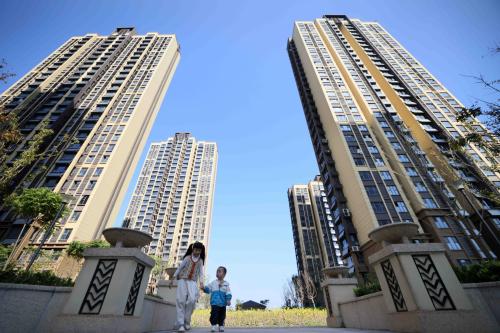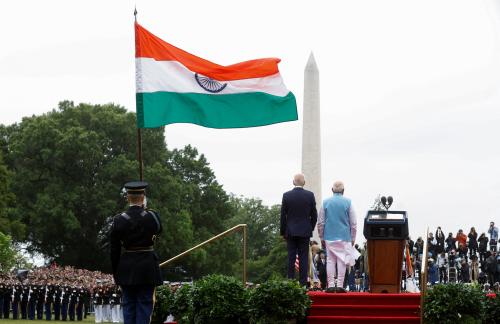Content from the Brookings Institution India Center is now archived. After seven years of an impactful partnership, as of September 11, 2020, Brookings India is now the Centre for Social and Economic Progress, an independent public policy institution based in India.
This column first appeared in Mint on July 6, 2014. Like all products of the Brookings Institution India Center, this is intended to contribute to discussion and stimulate debate on important issues. The views are solely those of the author.
Conventional wisdom suggests that great powers and aspiring great powers prefer bilateralism to multilateralism or plurilateralism; they consider the former a characteristic of the strong and regard the latter only as the privilege of the weak. India is no exception.
Yet, multilateralism offers a useful path for countries to emerge as great powers. For instance, the exclusive economic zone established under the law of the sea treaty overnight transformed India into a key maritime nation, even though New Delhi still lacks the capabilities to fully enforce its writ or benefit from the zone.
In addition, the real indication of the strength of a great power is its ability to establish multilateral institutions that reflect its values and protect its interests. The US—with one or two notable exceptions—is an exemplar of establishing a multilateral order in its image and to advance its interests.
Although the first presidential address of the Narendra Modi government was curiously silent on the role of multilateralism, Modi himself appears to have embraced the potentials of this approach. His bold invitation to leaders from the South Asian Association of Regional Cooperation (SAARC) to attend his swearing-in and his more recent call for a SAARC satellite reflect this perspective. This empowerment of SAARC is likely to manifest even more clearly at the summit later this year. Thus, Modi’s multilateral practice appears to be preceding the articulation of his policy.
While much attention has been and will be devoted to the series of bilateral meetings, Modi’s multilateral agenda is equally full and deserves similar scrutiny. Starting with the BRICS summit in Brazil through the annual United Nations General Assembly (UNGA) session in New York to the G20 summit in Australia and the East Asia summit in Myanmar and culminating with the SAARC summit in Nepal, these fora offer Modi an early opportunity to evaluate their potential role in advancing his development agenda.
Though all these groupings can contribute to Modi’s ambitious development plans clearly, some multilateral settings are more equal than others in furthering India’s objectives. The Modi government would do well to assess and prioritize its efforts in these groupings.
While BRICS has become politically inert, the prospect of a BRICS development bank is of import to India. This bank, which will inevitably be dominated by China, is unlikely to provide funds without any strings attached. China is likely to provide investment only where its own interests are served. Thus, Brazil and South Africa are expected to benefit more, unless India opens up even more to Chinese companies. In contrast, the G20 might be a more reliable source of investment but here, too, the lack of political direction and commitment to the group’s objectives has led to a drift. The Australian presidency of the G20 might provide the necessary impetus but to sustain the momentum India would have to step up its role, perhaps by working towards hosting a future summit.
Until recently, the UNGA sessions were somnolent affairs. Increasingly, however, a series of high-level special sessions on subjects as varied as disarmament to sustainable development are being held on the sidelines of UNGA. These sessions also have implications for India’s development agenda and need to be used to establish norms and institutions to further India’s objectives.
Though the weakest of all the groups, SAARC, ironically, has the greatest potential to further India’s interests and that of its neighbours. To achieve this, India will have to invest and engage more consistently while also improving bilateral ties, particularly with Pakistan.
Clearly, multilateralism matters to India and the Modi government has begun well in deeds rather than words. Its ability to sustain and positively influence multilateral processes (in addition to bilateral ones) will have a direct bearing on India’s emergence as a great power.
Image Source: tskabul



Commentary
Op-edWhy multilateralism matters for India
MINT
July 7, 2014